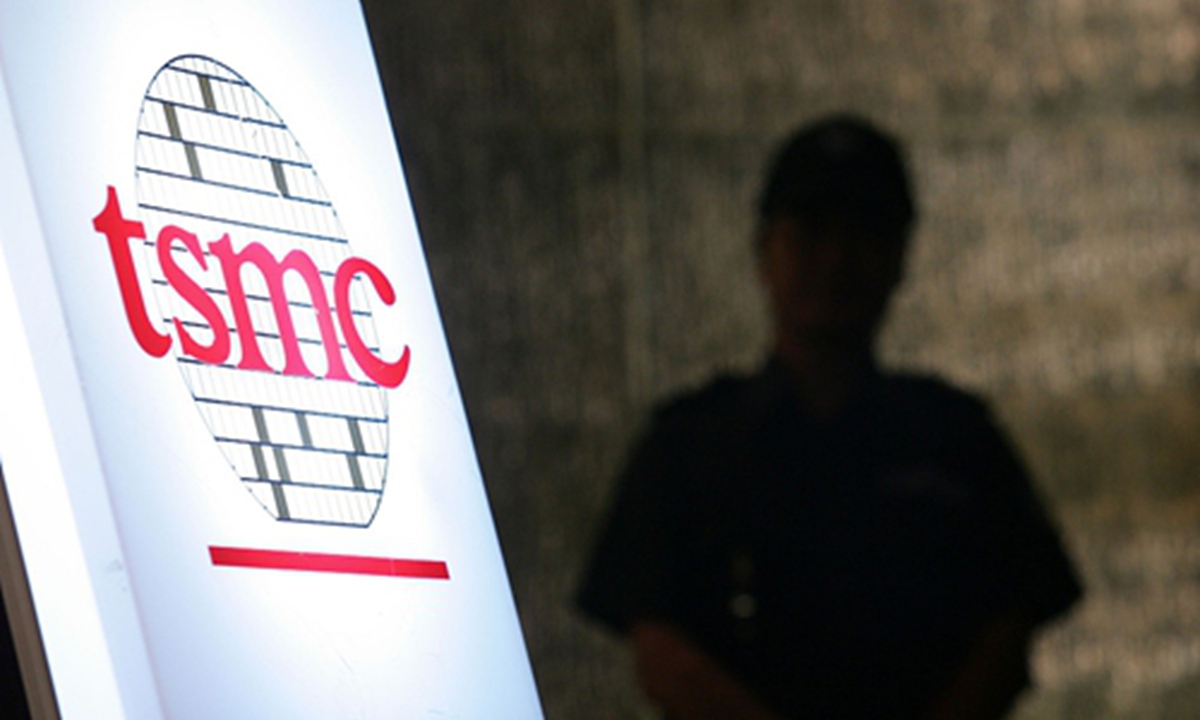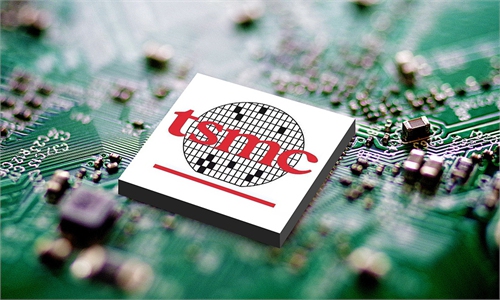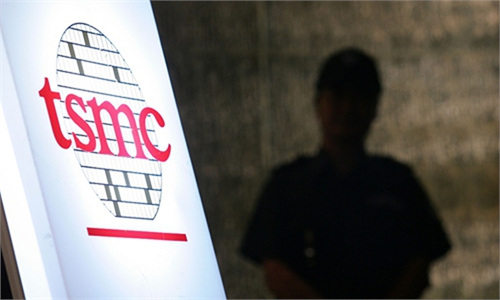
TSMC File photo
In front of the reality that Taiwan Semiconductor Manufacturing Co (TSMC) is turning into “USSMC,” the explanation of Taiwan island’s Democratic Progressive Party (DPP) authorities is feeble. On Tuesday, TSMC held a “relocation ceremony” for its first plant in Arizona. And Washington treated it “with due respect.” Together with Secretary of Commerce Gina Raimondo, US President Joe Biden visited the new plant and claimed in his speech that what is happening in Arizona “matters across the country and around the world.” But no matter how Washington performs, it will be a key event marking a dark turn in the development history of the global semiconductor industry.TSMC founder Morris Chang said at the ceremony that globalization and free trade are “almost dead.” While he may imply something else, the words coming from the founder of a highly globalized leading company are a meaningful and precise footnote to the building of TSMC’s new US plant. Moreover, Biden claiming “American manufacturing is back” in his speech at the ceremony is a huge irony. How is American manufacturing back? Isn’t TSMC a company that has been developing well in China’s Taiwan island?
No matter how the US and the DPP authorities cover it up, it doesn’t change the nature of the matter: Washington is using tricky ways to force the enterprise of our Taiwan region that occupies an important position in the world’s core high-tech industry to move to the US. Washington said a lot of inflated praise to welcome TSMC’s arrival, but the core, from beginning to end, is only about “US interests.” Almost nothing is mentioned about whether the two sides can achieve a win-win situation or whether it contributes to the global chip industry. And the US cannot mention this because this is not a natural result of the market at all. Political pressure from Washington and subsidies and inducements are throughout the construction of TSMC’s plant in the US.
It is also an alarm to the world, and we need to ring it louder. The US didn’t just do it to TSMC. It can also use TSMC as an example to oppress chip companies of other countries that are still hesitant and attract the manufacturing industry back to the US. For Washington, this is a deal that is sure to make profits, no matter economically or politically.
The US brutally forces its way into the world initially dominated by the rules of the market, just like a bull breaking into a porcelain store, disrupting rules and order. If it is true, as Chang said, that globalization and free trade are “almost dead,” then the US is clearly the culprit.
Compared with the selfish and arbitrary US, the DPP authorities are even more shameful. Not only do they have no resistance to US’ behavior of hollowing out Taiwan, but they act proactively, with their words and actions full of servility to Washington. And the wealth accumulated by Taiwan society over the past few decades has been squandered by the DPP as proof of allegiance to win Washington’s trust. From the reauthorization of ractopamine-enhanced pork imports from the US to the case of TSMC, there have been more and more such examples in recent years. However, if Taiwan is really hollowed out, the DPP’s value in Washington will significantly shrink. Isn’t it easier to be abandoned?
The DPP authorities argued that this is a good thing. We want to ask the DPP authorities: Is it a good thing to force TSMC to cut off its business on the Chinese mainland, causing its revenue to decline? Is it a good thing to relocate thousands of TSMC’s top engineers to the US, resulting in the largest migration of talent in Taiwan’s semiconductor industry? TSMC’s total investment in building a factory in the US will reach $40 billion, which is one of the largest foreign investments in US history. But is it a good thing when this happens while Taiwan’s society and economy face the “chronic blood loss” crisis? Since the precedent has been set, will the US just quit after getting the benefit? Who are you kidding?
TSMC, which takes up half of the global chip manufacturing industry, has factories all over the world, and it definitely has the right to choose where to set up factories and invest.
However, setting up a factory in the US is obviously not just about doing business. Chang said that his company’s attempt to build a factory in the US turned into a nightmare. How did the nightmare suddenly turn into a dream? Just eight months ago, Chang publicly stated that US’ attempt to grow its domestic chip production will be “a wasteful, expensive exercise in futility” because of the lack of talent and prohibitively high costs.
Regarding the opening of the new plant in Arizona, some US officials said it “could give a decisive edge to the American military and economy at a time when competition with China is heating up.” This obviously gets to the bottom of the matter.
As the old saying goes, “Twisted melon is not sweet.” In order to contain the development of China’s semiconductor industry, the US has done whatever it takes, but the bitter melon it wrung out will eventually be eaten by others. It is such a sorrow.


